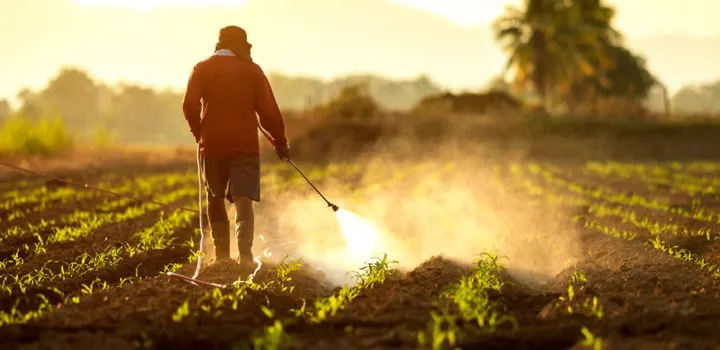LETTER TO THE EDITOR
‘Dinosaur’ pesticide article is alarmist and critically misunderstands the SA legislative position

Modern farming will continue to require pesticide and herbicide inputs to respond to pest pressures, which it must be reiterated are in fact safe to use when done so responsibly and appropriately according to product instructions.
The article “Dinosaur’ pesticide law clings to life as SA dithers on poisons reform” (Daily Maverick, 29 January 2024) refers. A number of the assertions made in the article are either incorrect or not placed in the correct context. This leaves the reader with an incorrect and alarming impression of not only the use of agricultural inputs but also the system which produces the food which we consume daily.
Firstly, it is important to note that in South Africa, and indeed on the rest of the African continent, the agricultural sector operates in a completely different climate, with different biodiversity profiles and overall environments. The continent itself does not have a singular set of characteristics which inform its needs for agricultural inputs to manage pest pressure and other concerns — in fact, neither does South Africa as we have diversity across our own agricultural production systems.
The relevance of this is that a comparison with the herbicide and pesticide regulatory framework which exists in the European Union (EU) is out of place. It is a matter of fact that, while the EU may not allow certain substances, these same products are approved for use, in a responsible manner, in many other countries including in the United States, Canada, Japan and more.
Further to this, in some regards, South African regulation for agricultural inputs is more rigorous than in the EU with the involvement of the Department of Health, the Department of Agriculture and independent toxicologists, prior to approval.
This leads to an important point. The article is premised on the sector’s use of inputs being governed by outdated legislation. This shows a fundamental misunderstanding of how legislation is implemented — which is in fact through the issuance of regulations with associated guidelines, all overseen by the Act-appointed Registrar.
While the legislation itself may be old, it is still relevant in terms of what it mandates the government to do in terms of regulation (which can be updated as needed with new regulations having been released in 2023) as well as conferring very significant power to the Registrar to oversee the sector — for example, the Registrar is able to impose any condition on the registration of a pesticide.
Net export considerations
It is also important to be cognisant of the fact that South Africa is one of the only countries on the continent which is a net exporter of food. This means our sector has higher agricultural input levels, including for pesticides, herbicides and biologicals, because we produce far more food for our own population and for export than most of our neighbours.
The suggestion that regulation should be vested in an independent regulatory body, which by inference would be outside of the government, given the article suggests there is some vested interest on the behalf of government in the commercial success of the agricultural sector which generates a conflict with its ability to regulate, is wholly out of step with not only international best practice, but also with the fundamental role of the state and government.
Whether it is the European Food Safety Authority, the US Food and Drug Administration, together with the US Environmental Protection Agency, across the globe the government and government agencies regulate pesticides and herbicides. And rightly so, a regulator outside of the government would need to be funded which would, through design, introduce interests (of the funders) at odds with the potential for independence. Taking a step back though — it is simply untrue, and reckless, to suggest that the government has a conflict of interest in terms of regulating the industry appropriately.
Finally, what is ignored in the article is the move not only by farmers but also by the agricultural inputs sector itself to promote and include integrated pest management practices (IPM) — which one can also think of, to an extent, under the umbrella of regenerative farming practices, into modern agriculture in South Africa for a number of years now.
The industry not only recognises the immense benefits of these for tackling pests and other pressures but has introduced numerous biological products for pest management through to soil rehabilitation as well as overall health and more. In fact, 15% of the market has shifted, and will continue to shift, toward biological use illustrating the trend. UPL has an entire range of biological solutions, Natural Plant Protection (NPP) covering a range of uses.
Along with practices like low- and no-till farming to protect soil, the industry body, CropLife also provides a knowledge base which includes information on the new and existing biological products and IPM in general, their safe use and how to integrate methods of regenerative farming — it also trains a large variety of actors in their use from smallholder and subsistence farmers through to commercial enterprises. IPM is even a module of the Basic Crop Protection course offered by CropLife.
Modern farming will continue to require pesticide and herbicide inputs to respond to pest pressures, which it must be reiterated are in fact safe to use when done so responsibly and appropriately according to product instructions.
This does not mean that South African agriculture and its inputs sector have not already recognised the immense environmental, sustainability and indeed commercial benefits of modalities like IPM and including ever more regenerative practices into food production.
Underpinning this is legislation, which is in fact still relevant, allowing for the practices of the industry when using these substances to be regulated appropriately as factors change through modern regulation and appropriately strong powers vested in the Registrar. DM
Marcel Dreyer is CEO of UPL-SA.







 Become an Insider
Become an Insider
Comments - Please login in order to comment.